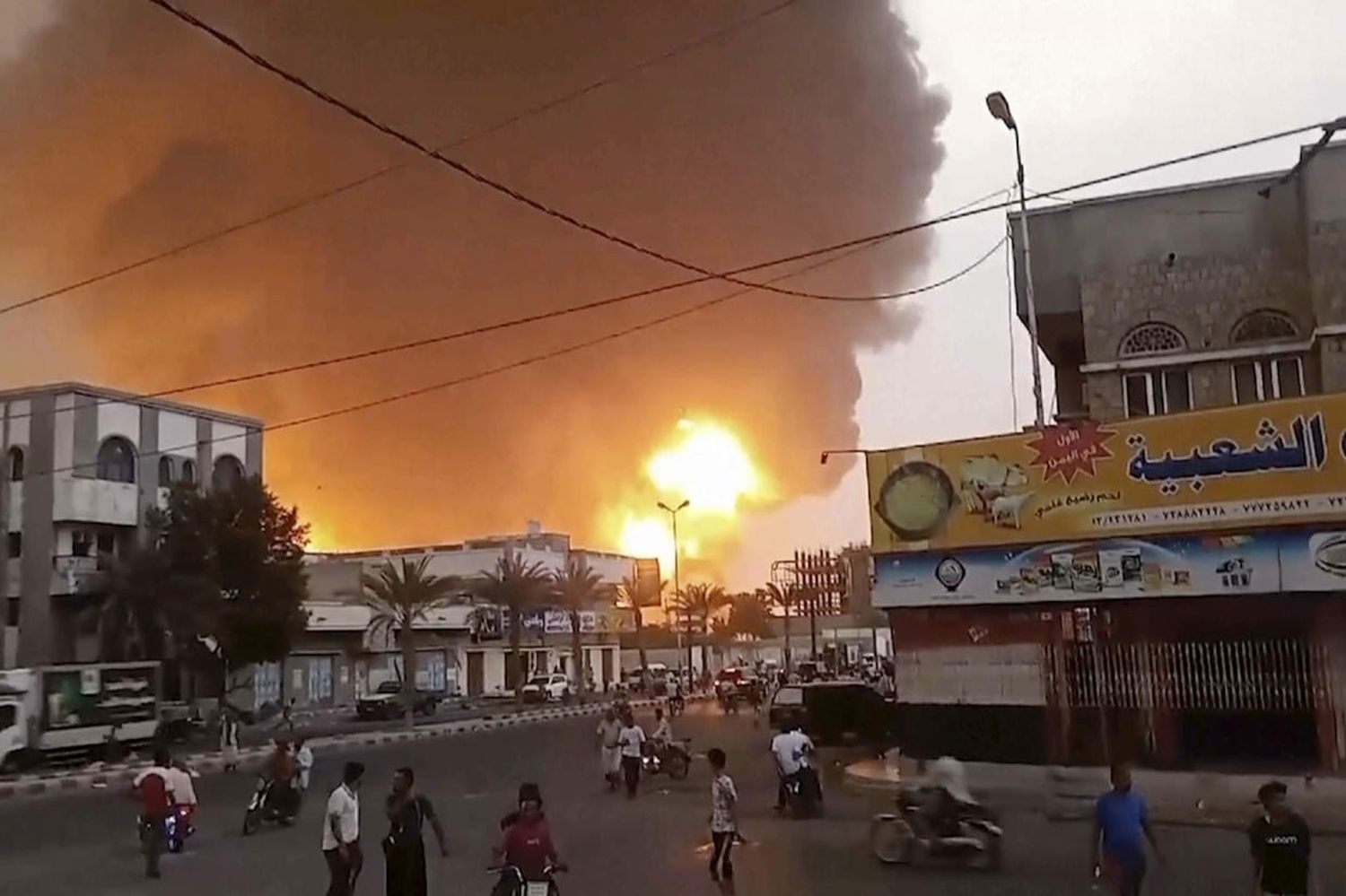Israel-Gaza War
Israeli Military Airstrikes Hit Houthi Targets in Yemen in Retaliation for Drone Attack
July 20, 2024 - In a significant escalation of regional tensions, Israeli fighter jets launched airstrikes on Houthi targets in Yemen early Saturday morning. The strikes came in direct retaliation for a deadly drone attack on Tel Aviv, which occurred just a day earlier. The Israeli military confirmed the operation, marking a notable shift in its engagement strategy in the Middle East.
The Drone Attack on Tel Aviv
The catalyst for the Israeli airstrikes was a drone attack on Tel Aviv, carried out by Yemen's Houthi rebels on Friday. The attack resulted in the death of one person and injured at least ten others. The explosion, which occurred in the heart of Tel Aviv, sent shockwaves through the city, shattering windows and raining down shrapnel. According to emergency responders, the drone, identified as Iranian-made, managed to bypass Israel's advanced aerial defense systems, leading to the tragic incident.
The Israeli Response
In response, the Israel Defense Forces (IDF) launched a series of airstrikes targeting Houthi military sites near the Al Hudaydah Port in Yemen. The IDF described the operation as a measure of self-defense, aimed at neutralizing the threat posed by the Houthi rebels, who have launched over 200 aerial attacks against Israeli targets in recent months. Israeli military spokesperson Daniel Hagari emphasized the necessity of the strikes, citing the repeated Houthi aggression as a breach of international law.
The airstrikes reportedly targeted dual-use infrastructure, including energy facilities and storage sites used by the Houthis. Al-Masirah TV, a Houthi-controlled media outlet, reported that the strikes caused significant damage, including widespread fires and power outages in the port city of Hodeidah. Health officials in Yemen confirmed multiple fatalities and injuries, though exact numbers remain unclear.
International Reactions
The Israeli airstrikes have drawn international attention, with various stakeholders weighing in on the escalating conflict. U.S. officials confirmed that there was no American involvement in the Israeli operation. However, the U.S. and British forces have been active in the region, targeting Houthi positions in response to attacks on commercial shipping, which the rebels claim are retaliatory actions against Israel.
Israeli Defense Minister Yoav Gallant defended the airstrikes, stating, "The blood of Israeli citizens has a price. This has been made clear in Lebanon, in Gaza, in Yemen, and in other places—if they dare to attack us, the result will be identical." Gallant underscored Israel's commitment to protecting its citizens and maintaining its right to self-defense.
Houthi Response
The Houthi movement, backed by Iran, condemned the Israeli airstrikes as "blatant aggression." Houthi spokesman Mohammed Abdulsalam took to social media platform X to declare that the attacks would only strengthen the resolve of the Yemeni people and their support for Gaza. The Houthis have been vocal in their solidarity with Palestinian groups, particularly Hamas, and have intensified their attacks on Israeli and Western targets in recent months.
Broader Implications
The Israeli airstrikes on Yemen mark a significant development in the ongoing conflict in the Middle East. The Houthis' ability to carry out a successful drone attack on Tel Aviv highlights the growing threat posed by non-state actors in the region. Moreover, the Israeli response underscores the potential for the conflict to escalate further, drawing in additional regional and international players.
Israeli Foreign Minister Israel Katz called for increased international sanctions on Iran, accusing Tehran of supporting and financing the Houthi rebels. "Iran is the head of the snake—it must be stopped now," Katz stated, urging global action to curb Iran's influence in the region.
Conclusion
As the situation continues to unfold, the international community watches closely, concerned about the potential for further escalation. The Israeli airstrikes in Yemen represent a decisive response to the Houthi drone attack on Tel Aviv, but they also raise questions about the broader implications for stability in the Middle East. Both sides remain resolute, with Israel vowing to defend its citizens and the Houthis pledging continued support for Gaza, setting the stage for a potentially protracted conflict.

